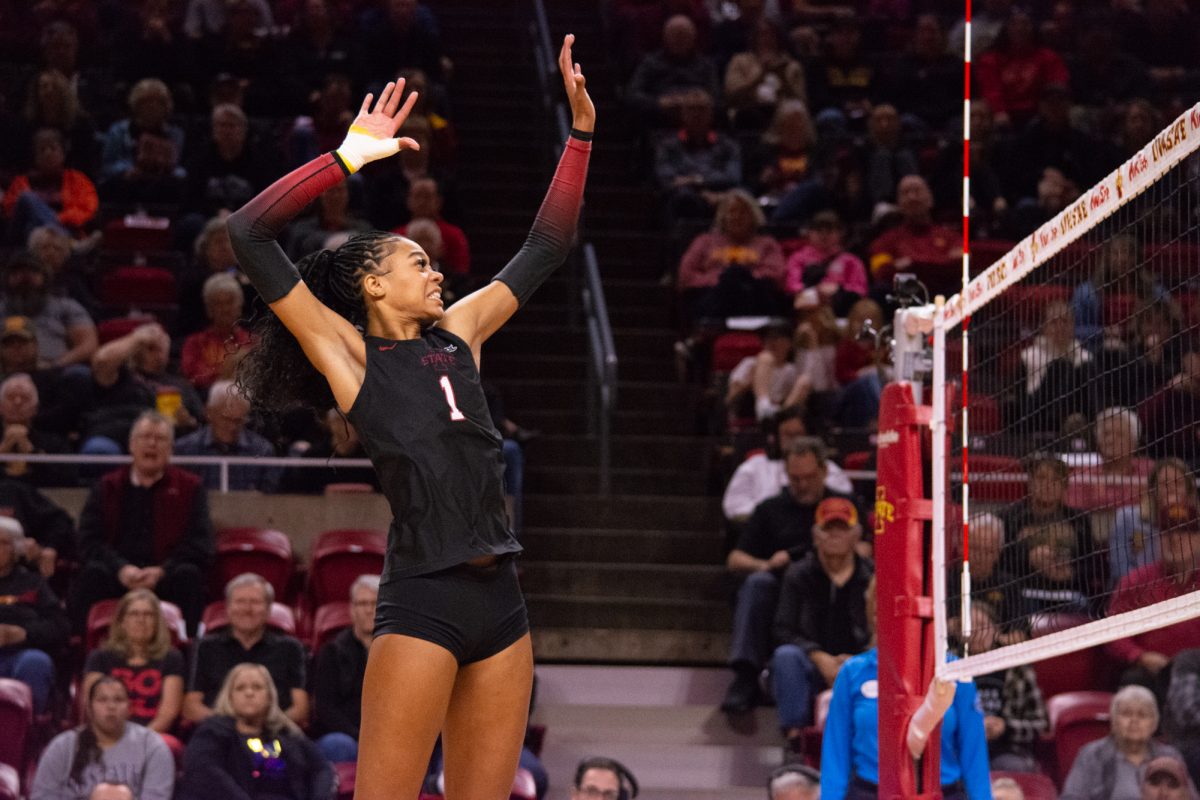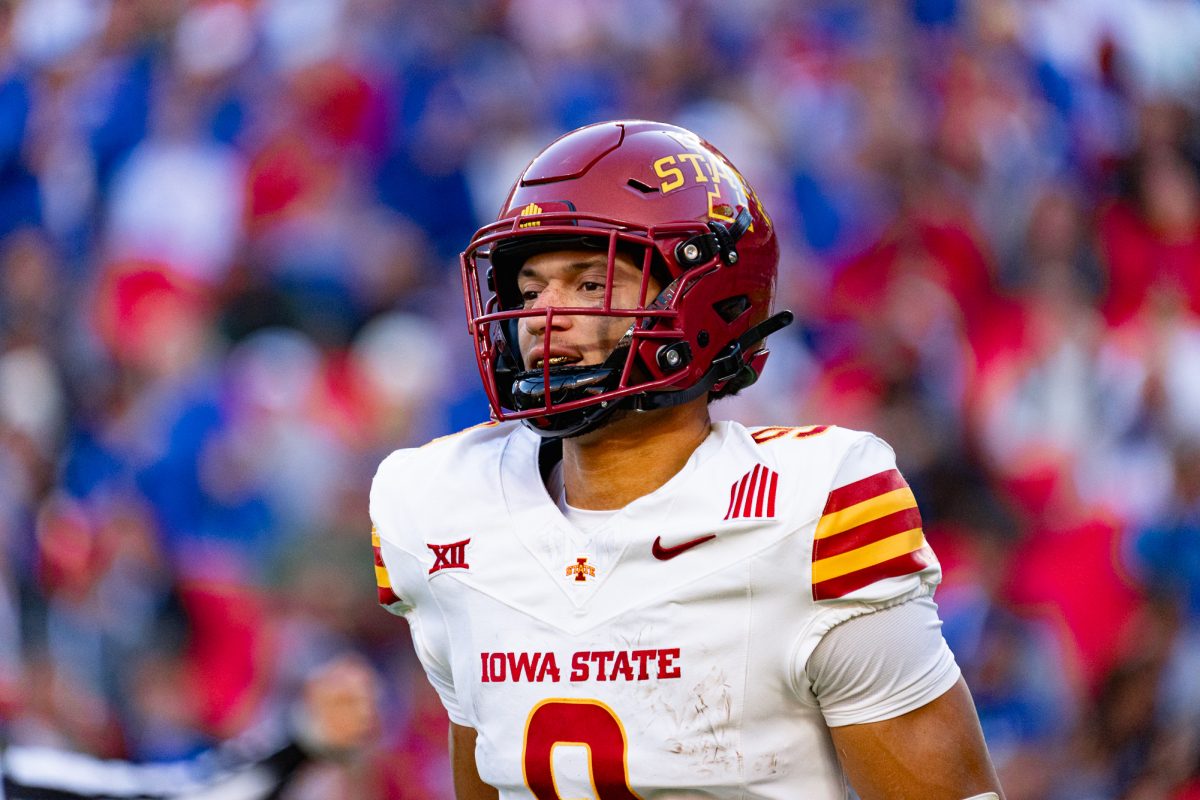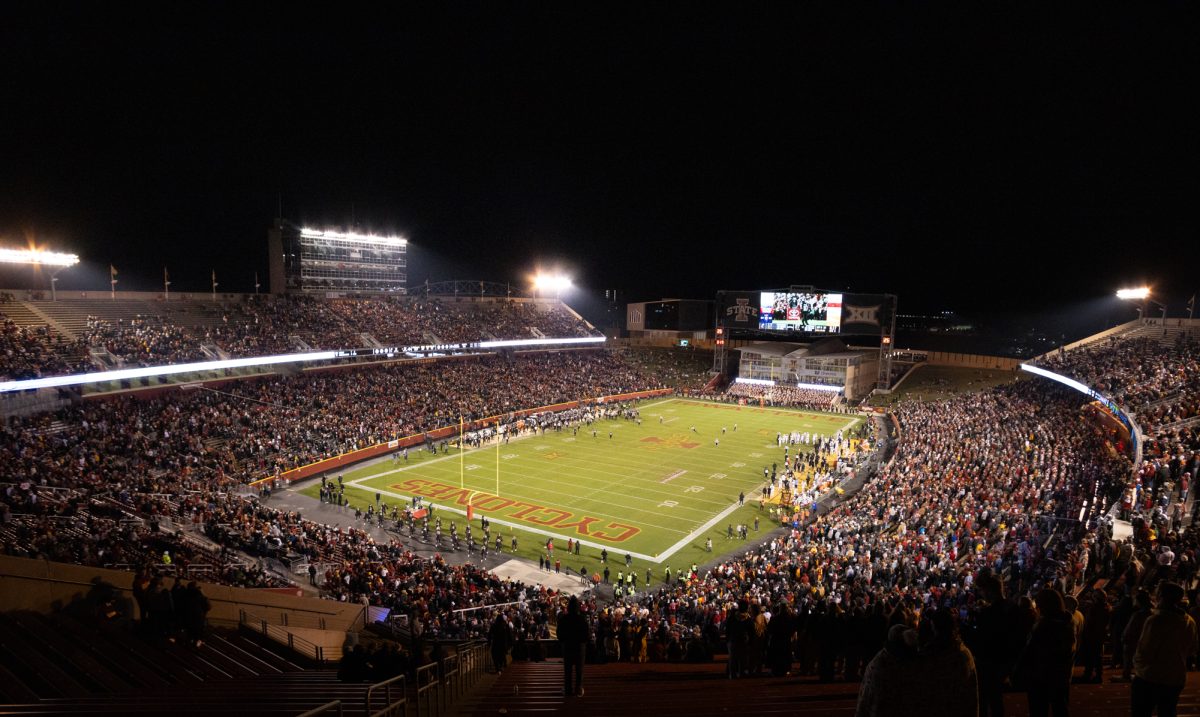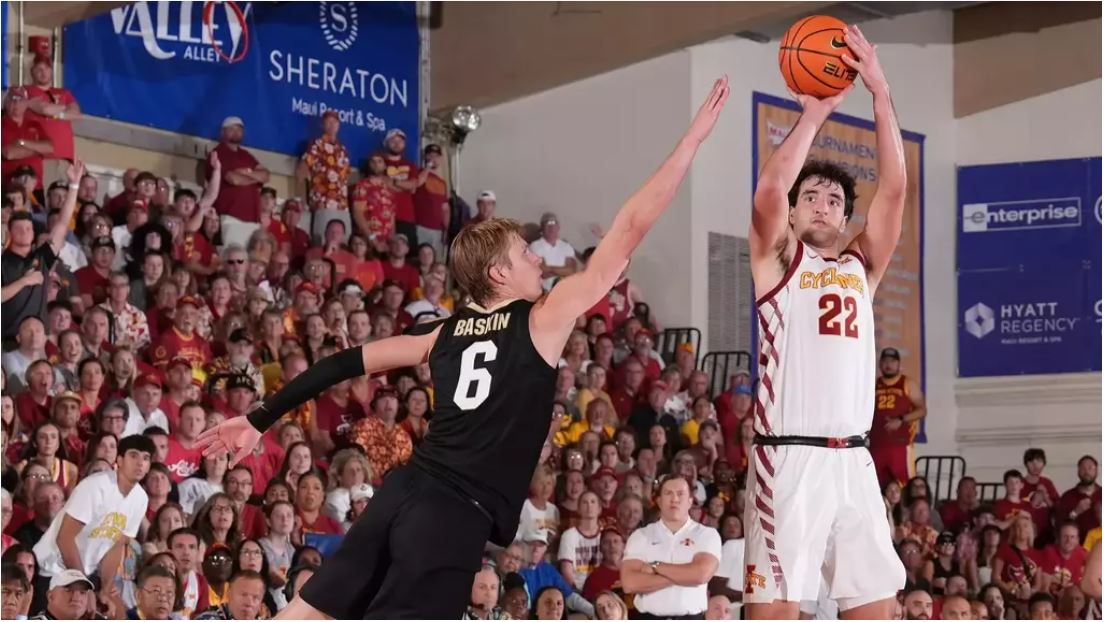COLUMN: Athletes are more than role models; they’re human
October 22, 2003
“I am not a role model,” said Charles Barkley in a 1993 Nike advertising campaign. It was such a powerful statement for so few words. It is also the statement that sparked a national controversy over the thin line between athletes and role models. Ten years later, the debate is hotter than ever and uncomfortably close to home.
Last week, Jackson Vroman was arrested and charged with drunken driving, an offense that landed him a suspension from the Iowa State men’s basketball team and put Iowa State in the media hot seat (again) regarding coach and player indiscretions.
While I am not at all advocating drunken driving or any other sort of public display that could land you on the front page of the paper, I feel sometimes athletes, among other public figures, are targeted and get a bad rap.
Being a college athlete and in the public eye can be difficult.
There is a certain public image of perfection athletes are expected to maintain, and when they fail, people are quick to blame the system or pass judgment. Being a public icon is a little more complicated than that.
First off, any suggestion that athletes are predisposed to binge drinking is preposterous.
When I participated in team sports, healthy, alcohol- and drug-free lifestyles were emphasized and encouraged, and consequences for drinking and drug use were clearly laid out.
If anything, the team atmosphere made it easier to avoid these things.
It could also be said that people who like the taste of beer are more likely to binge drink. The atmosphere of all their beer-loving friends makes them more prone to binge drinking. If that is the case, there’s no hope for me!
Media portrayal is also a very strong influence.
Jackson’s little mishaps not only made front page of the paper, but also the top story of the 10 o’clock news. Referring to the old adage, “if it bleeds, it leads,” or in this case, if it gets arrested at 4 a.m., it leads — interesting stories are what people are interested in.
The availability of the Internet has also affected the way information is spread. Today’s society is more informed and more judgmental about the information they receive.
We are quick to point out an athlete’s downfalls, but not the good deeds they do.
Did you know the men’s basketball team visits sick children in hospitals and signs autographs? Did you know it hosts camps in the summer so young kids can learn the game of basketball? And did you know that Jake Sullivan, Jared Homan and Andrew Skoglund were all-academic selections last year (www.cyclones.com)?
Maybe you didn’t — it is not as juicy as what they did after a night of going out and drinking.
Back to the idea of athletes being public figures, and thus role models for young athletes that want to be just like them. This is not untrue: athletes need to realize there are impressionable youth out there that idolize their every move.
However, athletes do not ask for fame — it comes with the job description.
Some children go to all the Cyclone games, and when they go home they dream of becoming just like their favorite athlete. The next day while playing on the playground, they argue over who gets to be which player.
But that’s when reality should set in, and parents should intervene. Ultimately, parents should be responsible for the impressions their children get from their role models and be able to explain to them the difference between right and wrong.
Children should not look up to someone so much to the point whereas they want to copy their every action, including what they do off the court.
Parents should provide the majority of role modeling. In the words of Michael Jordan, “My heroes are and were my parents. I can’t see having anyone else as my heroes.”
Now we need to look at the bigger picture. No one is perfect, no matter what image we have of him or her. Public figures will never live up to the perfect impressions we have of them. It’s like we predispose them for failure, almost reveling in the fact that our prophecies came true.
Maybe we should lighten up a little bit and accept that athletes are people, too — people just like us who make mistakes.
Obviously, the line between athlete and role model is very hazy and open to interpretation.
We need to realize athletes are not perfect, and we should not expect them to be.
We should just expect them to be human.





